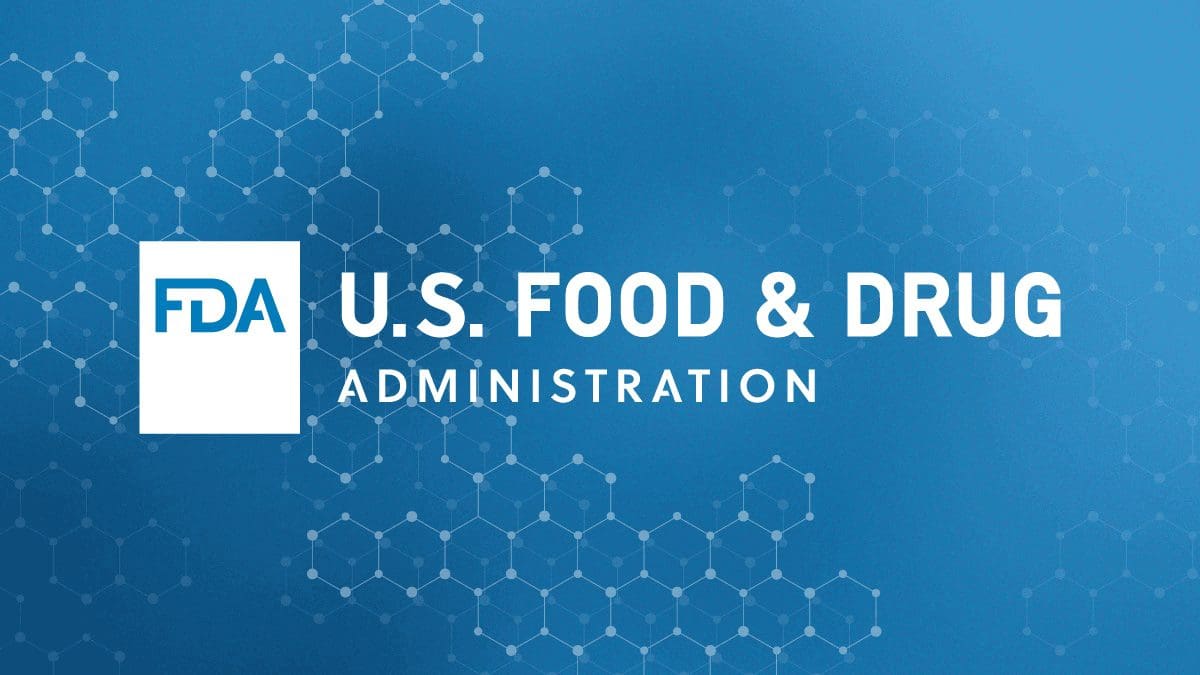
Today, the U.S. Food and Drug Administration is providing an at-a-glance summary of news from around the agency:
- Today, the FDA published the FDA Voices: “Give Your Community a Boost: Combatting Misinformation Through Communication and Research,” by RADM Richardae Araojo, Pharm.D., M.S., Associate Commissioner for Minority Health and Director of the Office of Minority Health and Health Equity. April is National Minority Health Month, and the U.S. Department of Health and Human Services selected “Give Your Community a Boost” as this year’s theme. Over the last two years, the FDA has worked tirelessly with our U.S. government partners, medical product manufacturers, international partners and additional stakeholders to address COVID-19. Although the pandemic continues, significant strides have been made in efforts to protect the health of Americans. The FDA authorized and approved multiple vaccines, authorized several treatments, increased available testing options such as at-home tests and provided countless educational resources in a variety of languages.
- On March 31, the FDA published findings from the facility inspection at the Abbott Nutrition facility in Sturgis, Michigan, on the FDA Investigation of Cronobacter Infections: Powdered Infant Formula page. Five environmental subsamples collected from the Sturgis facility were positive for Cronobacter sakazakii; four were detected by the FDA and one was detected through firm-initiated testing. The positive Cronobacter sakazakii environmental samples at the Sturgis facility have been analyzed using Whole Genome Sequencing, revealing five different strains of Cronobacter sakazakii. Product samples collected by FDA at the facility were analyzed for Cronobacter by the FDA and were found negative. There are no additional FDA samples pending analysis at this time. On March 18, 2022, the FDA inspection at the Abbott Nutrition facility was completed and a Form 483 was issued that included four observations.
- On March 31, the FDA revised its guidance, Emergency Use Authorization for Vaccines to Prevent COVID-19. The revised guidance updates recommendations for the clinical data to support effectiveness of a COVID-19 vaccine that has been modified to target a particular SARS-CoV-2 variant of concern. The revised guidance also provides the most up-to-date recommendations based on lessons learned during the COVID-19 public health emergency and submissions by sponsors. The FDA also revised Section III (Criteria and Considerations for the Issuance of an EUA for a COVID-19 Vaccine) in the guidance to delete the expectation that sponsors should continue to collect placebo-controlled data after issuance of an EUA. The agency made this revision in recognition that the pandemic has evolved, and safe and effective COVID-19 vaccines have been authorized and approved. Thus, it may not be feasible to continue to collect placebo-controlled data when an effective vaccine is authorized and available for study participants.
- On March 31, the FDA denied the request in two citizen petitions, from the Council for Responsible Nutrition and the Natural Products Association (NPA), asking the agency to determine that products containing N-acetyl-L-cysteine (NAC) are not excluded from the definition of a dietary supplement under section 201(ff)(3)(B)(i) of the Federal Food, Drug, and Cosmetic Act (FD&C Act). While the FDA’s response to the citizen petitions confirmed NAC is excluded from the definition of a dietary supplement, the agency has not yet reached a decision on the NPA citizen petition’s alternative request that the agency undertake rulemaking to allow the use of NAC in dietary supplements.
- On March 30, the FDA published the FDA Voices: “FDA’s Technology and Data Modernization in Action in 2022,” by Robert M. Califf, M.D., MACC, Commissioner of Food and Drugs, and Vid Desai, Chief Information Officer. At the one-year anniversary of the FDA’s Data Modernization Action Plan, released in March 2021, and nearly three years since launching the Technology Modernization Action Plan, the agency is providing an update on progress with “Modernization in Action.” The anniversary report provides a detailed review of the progress made in moving closer to the speed of industry in streamlining workflows, reducing the cost of maintaining data and network security, and improving the timeliness of delivery of services.
- On March 30, the FDA announced it is extending the public comment period for the part 15 public hearing on “Scientific Data and Information Related to the Residue of Carcinogenic Concern for the New Animal Drug Carbadox.” The FDA is extending the comment period by 60 days, until June 10, 2022.
- On March 30, the FDA announced the approval of the new animal drug Zenalpha (medetomidine and vatinoxan hydrochlorides injection) for use as a sedative and analgesic to help keep dogs sedated and comfortable while undergoing exams or certain medical procedures.
- On March 30, the FDA updated the list of Health and Human Services U.S. regions where sotrovimab is not authorized. This update is based on the Centers for Disease Control and Prevention (CDC) Nowcast data estimates from March 29 that the proportion of COVID-19 cases caused by the Omicron BA.2 variant is above 50% in these three regions.
- Sotrovimab is not authorized in the following states and territories:
- Connecticut, Maine, Massachusetts, New Hampshire, Rhode Island and Vermont (Region 1) (as of 3/25/2022)
- New Jersey, New York, Puerto Rico and the Virgin Islands (Region 2) (as of 3/25/2022)
- Illinois, Indiana, Michigan, Minnesota, Ohio and Wisconsin (Region 5) (as of 3/30/2022)
- Arizona, California, Hawaii, Nevada, American Samoa, Commonwealth of the Northern Mariana Islands, Federated States of Micronesia, Guam, Marshall Islands and Republic of Palau (Region 9) (as of 3/30/2022)
- Alaska, Idaho, Oregon and Washington (Region 10) (as of 3/30/2022)
- Sotrovimab remains authorized in U.S. regions where the CDC Nowcast point estimate for the proportion of the Omicron BA.2 variant remains below 50%.
- Sotrovimab is not authorized in the following states and territories:
- On March 29, the FDA approved the CartiHeal Ltd. Agili-C, a breakthrough-designated device to treat defects or lesions that can occur in cartilage covering bones in the knee joint. The device is a small cylinder of material, implanted below the defect or lesion in the cartilage onto the underlying bone where it gradually resorbs and is replaced by new cartilage. The Agili-C is a porous, biocompatible and biodegradable material made from natural calcium carbonate derived from purified, inorganic coral’s external skeleton.
- On March 29, the FDA authorized for marketing the BrainTemp Neonate System, an external system for measuring a neonate’s brain temperature to be used by health care professionals who care for neonates in intensive care units, operating rooms and recovery rooms. Brain and core temperature of neonates are measured in circumstances where targeted temperature management may be indicated.
- Today, the FDA updated the Evusheld (tixagevimab co-packaged with cilgavimab) fact sheet and frequently asked questions with updated dosing information for patients who had already received the previously authorized initial dose (150 mg of tixagevimab and 150 mg of cilgavimab). These patients should receive an additional Evusheld dose as soon as possible, with the dose based on the following criteria:
- If the patient received their initial dose less than or equal to 3 months ago, the patient should receive a dose of 150 mg of tixagevimab and 150 mg of cilgavimab.
- If the patient received their initial dose longer than 3 months ago, the patient should receive a dose of 300 mg of tixagevimab and 300 mg of cilgavimab.
- If the patient received their initial dose less than or equal to 3 months ago, the patient should receive a dose of 150 mg of tixagevimab and 150 mg of cilgavimab.
- COVID-19 testing updates:
- As of today, 425 tests and sample collection devices are authorized by the FDA under emergency use authorizations (EUAs). These include 293 molecular tests and sample collection devices, 84 antibody and other immune response tests and 48 antigen tests. There are 74 molecular authorizations and 1 antibody authorization that can be used with home-collected samples. There is one EUA for a molecular prescription at-home test, two EUAs for antigen prescription at-home tests, 15 EUAs for antigen over-the-counter (OTC) at-home tests, and three for molecular OTC at-home tests.
- The FDA has authorized 28 antigen tests and nine molecular tests for serial screening programs. The FDA has also authorized 910 revisions to EUA authorizations.
- As of today, 425 tests and sample collection devices are authorized by the FDA under emergency use authorizations (EUAs). These include 293 molecular tests and sample collection devices, 84 antibody and other immune response tests and 48 antigen tests. There are 74 molecular authorizations and 1 antibody authorization that can be used with home-collected samples. There is one EUA for a molecular prescription at-home test, two EUAs for antigen prescription at-home tests, 15 EUAs for antigen over-the-counter (OTC) at-home tests, and three for molecular OTC at-home tests.
The FDA, an agency within the U.S. Department of Health and Human Services, protects the public health by assuring the safety, effectiveness, and security of human and veterinary drugs, vaccines and other biological products for human use, and medical devices. The agency also is responsible for the safety and security of our nation’s food supply, cosmetics, dietary supplements, products that give off electronic radiation, and for regulating tobacco products.











